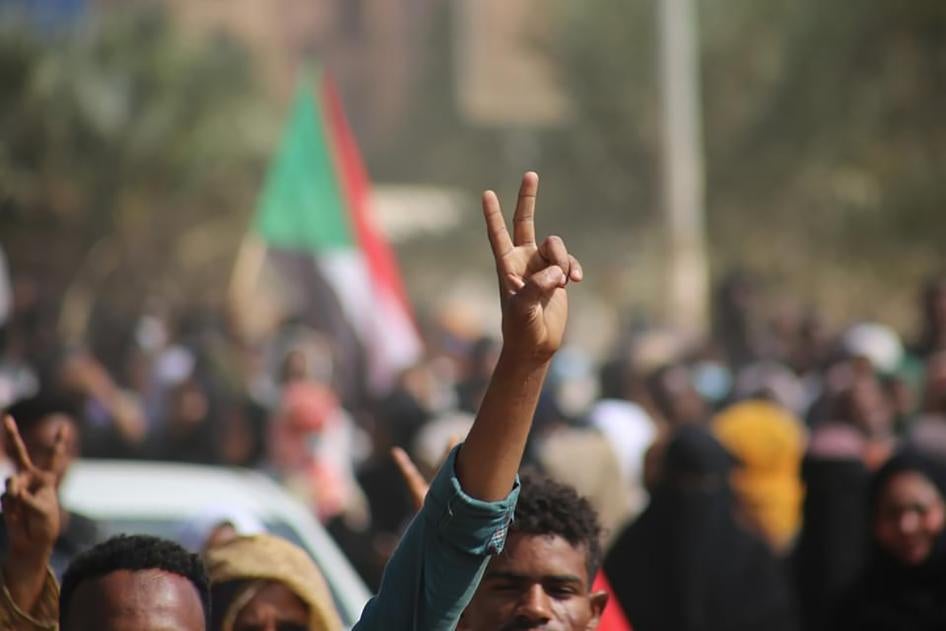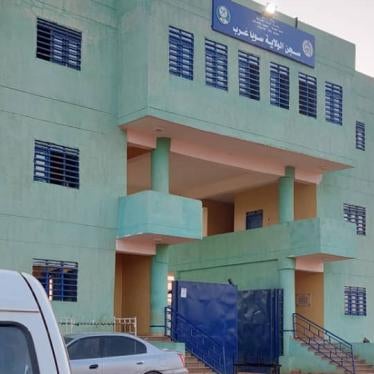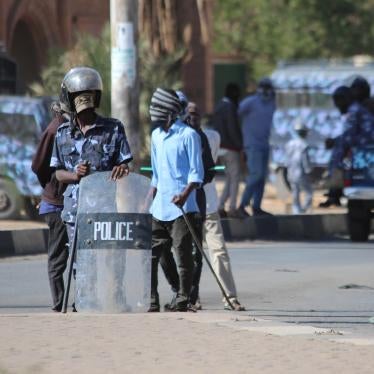On May 29, Sudan’s military leaders announced they were lifting a state of emergency imposed seven months ago that has been used as cover for a relentless attack on the country’s tenacious protest movement and to further entrench impunity for security force crimes. Authorities have also released at least 100 detainees who were held in connection to the protests, according to lawyers. While these are positive steps, ongoing repression and Sudan’s military leaders’ long history of deflecting criticism require scrutiny and pressure for real change to increase, not lessen.
The move occurs ahead of an expected visit by the United Nations designated expert on human rights in the Sudan. During his last visit in February, authorities released 115 people in Khartoum on bail. Shortly after, arbitrary arrests resumed.
Ninety-eight people have been killed during protests since the October 2021 coup. Human Rights Watch has also documented how security forces have beaten and otherwise ill-treated detained protesters, including stripping child detainees naked and threatening sexual violence against women. We also found hundreds had been unlawfully detained, and some forcibly disappeared since the coup, notably by the police and the General Investigation Service (GIS).
No one has been held to account for these crimes. And the repression shows no sign of abating.
On May 28, two people were killed at a protest in southern Khartoum. Doctors have recently reported treating increasingly serious injuries they believe were caused by rubber and frangible bullets as well as by teargas canisters. On May 30, after the state of emergency was lifted, police violently dispersed protesters in and around Khartoum. Doctors said 33 were injured, with six reported bullet injuries.
Friday will mark the third year anniversary of security forces’ violent disbanding of a sit-in on June 3, 2019 that left at least 120 people dead. The committee established to investigate these crimes recently announced it was suspending its activities, citing obstruction by the authorities.
Sudan’s regional and international partners need to make clear they won’t just accept cosmetic steps but will continue to use all tools at their disposal, including individual, targeted sanctions against those leading the repression.
Real change means concrete reform and credible efforts to hold those responsible for serious crimes to account. The victims of June 3, 2019, and of the violent repression since, deserve nothing less.









